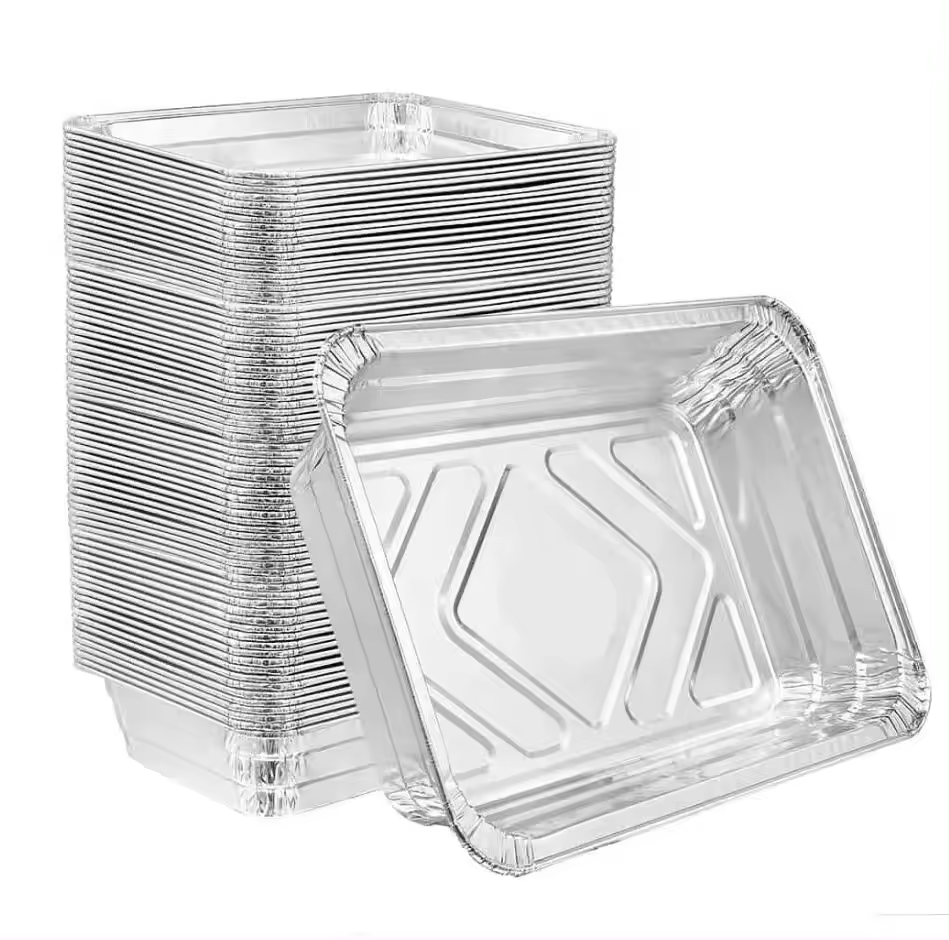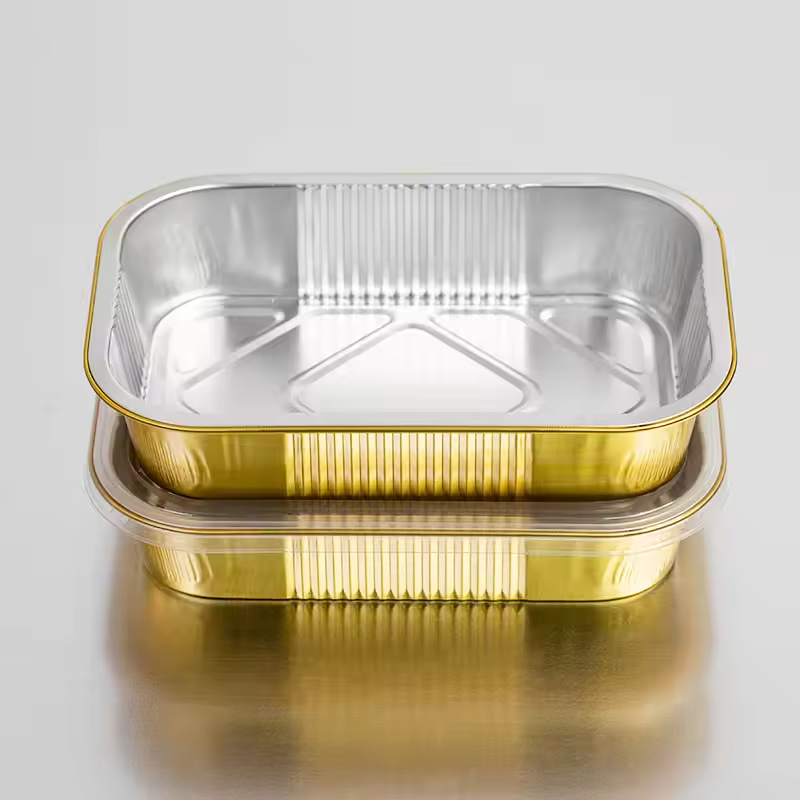Aluminum foil containers are widely used in food packaging and takeaway industries. They can be categorized into wrinkled and smooth aluminum foil containers based on the presence or absence of surface wrinkles. These two types differ in manufacturing processes, application scenarios, and their advantages and disadvantages. Below is a detailed introduction:
Manufacturing Process
Wrinkled Aluminum Foil Containers
Forming Process: Produced using a stamping process where molds are used to shape the containers. This method allows for rapid mass production at a lower cost.
Material Characteristics: Typically made from thinner aluminum foil, which offers a certain degree of flexibility and is easy to mold.

Smooth Aluminum Foil Containers
Forming Process: Produced using stamping or stretching processes, often requiring multiple steps to achieve a smooth finish. The manufacturing process demands higher thickness and quality of the aluminum foil.
Material Characteristics: Generally made from thicker aluminum foil, offering higher strength and a smooth, wrinkle-free surface.
Application Scenarios
Wrinkled Aluminum Foil Containers
Daily Use: Suitable for home dining, picnics, barbecues, etc. They are affordable and convenient to use.
Commercial Use: Widely used in takeaway and fast food industries due to their cost-effectiveness and good insulation properties.
Smooth Aluminum Foil Containers
High-end Dining: Used for upscale takeaway food, banquet packaging, and scenarios requiring higher quality and aesthetic appeal.
Special Uses: Ideal for packaging that requires high hygiene standards, such as pharmaceuticals and health products, due to their smooth, wrinkle-free surface.
Advantages and Disadvantages
Wrinkled Aluminum Foil Containers
Advantages: Low cost, simple manufacturing process, good insulation, and moisture resistance.
Disadvantages: Lower strength, unsuitable for heavy food packaging, and less aesthetically pleasing due to the wrinkled surface.
Smooth Aluminum Foil Containers
Advantages: Attractive appearance, high strength, suitable for high-end applications and special uses, excellent pressure and impact resistance.
Disadvantages: Higher manufacturing cost, complex production process, and higher price.

Environmental Impact and Recyclability
Both wrinkled and smooth aluminum foil containers are environmentally friendly and recyclable. Aluminum foil is a recyclable material that, when properly recycled, can significantly reduce resource waste and environmental pollution.
Conclusion
Wrinkled and smooth aluminum foil containers have distinct differences in manufacturing processes, application scenarios, and their respective pros and cons. Consumers can choose the appropriate type based on their specific needs. Regardless of the choice, it is important to consider the environmental impact and recyclability of aluminum foil containers to minimize ecological harm.


